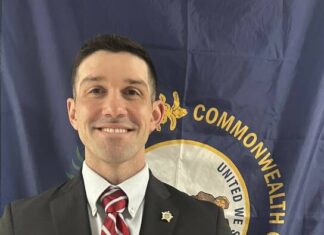This week, the General Assembly wraps up what it calls the interim, a six-and-a-half-month period that brings House and Senate committees together in a less-hectic atmosphere to review issues affecting the state.
Although no laws are passed, this time is still critical to the legislative process. It would be difficult if not impossible for legislators to write and then debate potentially hundreds of bills each winter without the information and public testimony gathered during the summer and fall.
There are 14 main House and Senate committees that meet jointly during the interim, and their focus ranges from agriculture to veterans. There are 10 other committees whose sole job is to permanently monitor such areas of state government as administrative regulations, Medicaid and public retirement systems. A handful of other, temporary committees are often formed as well, and this year, these have studied school safety, taxes and diabetes.
Most of the meetings during the interim take place in Frankfort, but several are held out in the state, to give communities a better chance to highlight projects and programs specific to their region.
The legislature’s Agriculture Committee, for example, always meets in Louisville in conjunction with the Kentucky State Fair, and it routinely travels to Lexington to learn more about the University of Kentucky’s agricultural work.
This year, the committee spent a sizable portion of both of these meetings learning more about a company that is producing malaria medication.
It is derived from a plant whose growing practices are similar to tobacco, which is why Kentucky could soon be on the front lines in fighting a disease that thankfully has little impact here but is the cause of more than 400,000 deaths a year worldwide.
Beyond being poised to grow the plant needed to make this drug, Kentucky is also home to human trials at UK’s Markey Cancer Center to see if the medicine can have a meaningful impact on several types of cancer. There is even the possibility that it could be used by diabetics.
The company is starting small, but it estimates that as many as several hundred thousand acres of the plant could ultimately be needed, which would be equivalent to a fourth of our current corn production.
Another medical matter legislators discussed this year is the steep rise in Hepatitis A cases. Since August 2017, there have been almost 1,500 people hospitalized across the commonwealth, and 18 have died as a result. State officials are encouraging Kentuckians to get vaccinated – the two-shot regimen is good for at least 20 years, if not much longer – and federal and state funds have been set aside to pay for thousands of doses.
Some of the legislative committees’ attention this year has been on different kind of medical needs. We heard from families facing steep bills because their health insurance only covered a faction of a loved one’s air-ambulance costs; and firefighters testified about Post-Traumatic Stress Disorder within their ranks. Research indicates more than a fifth will meet the criteria for PTSD at some point in their career.
Other issues reviewed this interim include:
* School-safety measures, especially in the wake of the Marshall County High School shooting in January. One official said in June that nearly 300 threats were made against Kentucky schools just in the four months after that tragedy.
* The possibility that Kentucky may run out of prison space by next May, mainly because of factors tied to substance abuse. Many local jails that house prisoners also do not have adequate resources to provide treatment in these cases.
* The need for Kentucky to invest more in updating our water and wastewater treatment plants, which are nearing 40 years of age on average, and their transmission lines. Overall, it would take more than $14 billion between now and 2035 to modernize these two critical systems.
* Hearing an update on the newly created Boots to Business program, which helps veterans transition from the military to building a business. In its first two months, the program enrolled more than 100 veterans.
* Learning we’re seeing a welcome boost in Kentucky’s defense contracts. The Kentucky Commission on Military Affairs says they grew from $5 billion in 2016 to $6.5 billion in 2017, and we’re on track to see a “staggering” increase once this year is complete.
With all of this information now in hand, the House and Senate are ready for the start of the 2019 Regular Session, which will begin on January 8th. Since it is an odd-numbered year, we will meet for 30 working days.






